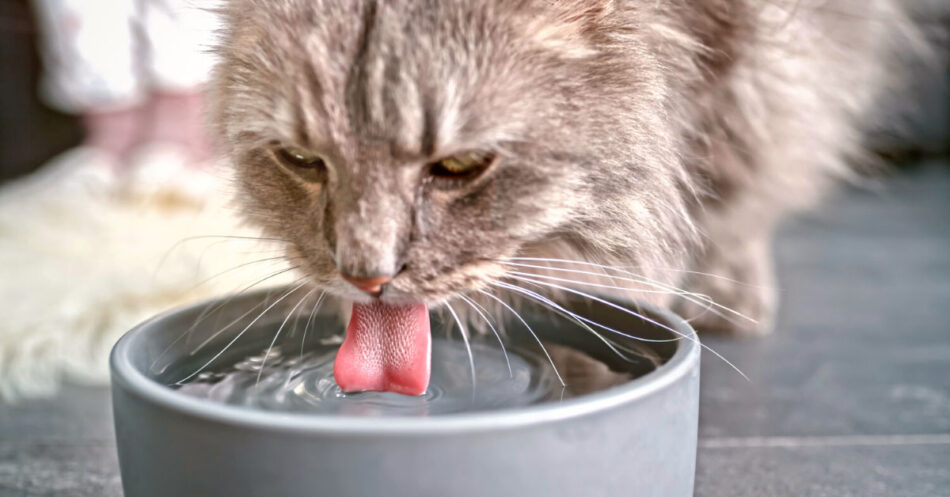
3 Reasons Why Older Cats Get Dehydrated and How to Help Them
This post may include affiliate links. Please read my disclosure policy.
If your cat is drinking more or less than she usually did or showing signs of dehydration, it’s important to monitor her behavior closely and schedule a visit to your veterinarian right away. Older cats may be more susceptible to chronic illnesses that result in dehydration. These include:
- Kidney disease
- Diabetes
- Hyperthyroidism
3-minute read
Please note: This article is informational only and you should always speak with your veterinarian to obtain your cat’s health treatment plan.
While your cat may have always had their quirks, you likely know exactly what’s normal for your cat. So when your older cat gets dehydrated for no apparent reason, it’s cause for concern.
First, let’s talk about how to tell if your cat is dehydrated.
How to Tell if Your Cat Is Dehydrated
Even if your cat is drinking as much as she always has, she may still be dehydrated. So it’s important to not only monitor her fluid intake, but carefully observe her day-to-day behavior and make note of any of the following so you can discuss with your veterinarian.
Signs that your cat is dehydrated include:
- Low energy
- Pale and/or dry gums
- Panting
- Dry skin
- Less urine in the litter box
- Sweating (check the paws!)
- Increased heart rate
- Appetite changes/refusal to eat
- Sunken eyes
Remember, you know your cat the best! So if you see any of these signs of dehydration in your cat, please schedule an appointment with your veterinarian.
3 Serious Illnesses That Cause Dehydration in Older Cats
If your cat is a senior, or even middle aged, it’s important to rule out serious reasons for dehydration. These include:
Diabetes
Diabetes may cause increased thirst, so it may seem like your cat is getting plenty of fluids. However, it also causes increased urination, putting your cat at risk for dehydration.
According to Metropolitan Veterinary Associates, cats older than 5 are more likely to have diabetes than younger cats. Risk factors for feline diabetes are very similar to those in humans: obesity, inactivity, and even genetics.
Diabetes needs to be managed with the help of your veterinarian.
Hyperthyroidism
Hyperthyroidism is an overproduction of thyroid hormone and occurs mostly in cats 10 years or older. This condition causes the kidneys to produce more urine and can also cause diarrhea and vomiting, so your cat may become dehydrated.
You can learn more about hyperthyroidism in senior cats in this blog post. It’s a serious condition that you’ll need to discuss with your veterinarian.
Kidney Disease
Kidney disease is most common in older cats, but it can even affect middle aged cats. When your cat’s kidneys no longer work properly, you may notice your feline friend drinking and urinating more than she used to. And despite the increase in fluid intake, your cat may still suffer from dehydration.
Kidney Disease in cats must be managed by a veterinarian and it’s important to get help quickly.
To learn more, please read my article about kidney disease in cats.
Pin Me!
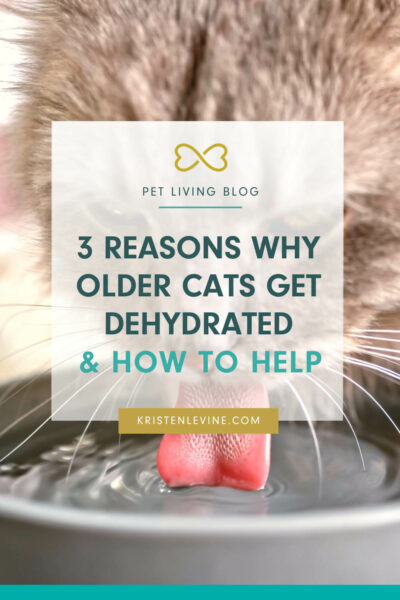
How to Get Your Senior Cat Hydrated
If you’ve addressed any serious health issues with your vet and come up with a treatment plan, or if it’s determined that your cat is purr-fectly fine but not drinking enough, it’s time to get your cat hydrated!
Cats are known for being particular about their wants and needs, so you may have to try several of these hydrating tips before landing on the one that works best for your cat.
Use a Fountain
Cats are known for giving preference to running water. But leaving your faucet running isn’t a good idea. Instead, try a cat fountain. My favorite is the Catit Flower Fountain. It’s inexpensive and satisfies your cat’s inner desire to drink from running water.
Add Flavor to Your Cat’s Water
Some cats just like it fancy! If your cat simply doesn’t like water, try adding a little bit of tuna juice or broth to your cat’s water dish.
Add Water to Your Cat’s Food
If you can’t get your cat to increase straight water intake, try adding a bit more fluid to her kibble. Or, incorporate canned food, which contains more water.
Put Ice Cubes in the Bowl
Your cat may be more likely to lick her water than drink it, and that’s OK! A few ice cubes in her bowl can help increase her water intake.
The Tail End
If your cat is dehydrated, it’s important to get help right away and rule out any serious conditions. But if your cat is healthy or simply needs at-home care to increase water intake, there are simple ways to accomplish this and get your cat hydrated again.
Hydration is just one important factor in your cat’s overall health and it’s important to monitor your cat’s vitals regularly at home. Need help knowing how to monitor your kitty’s vital signs? Grab my free checklist below!
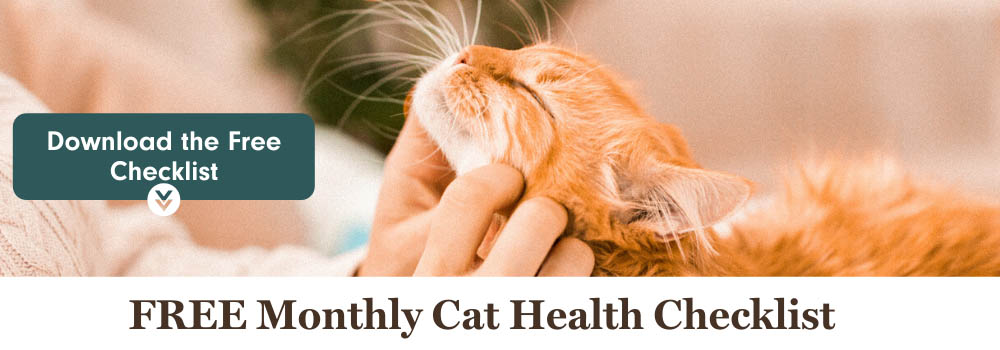



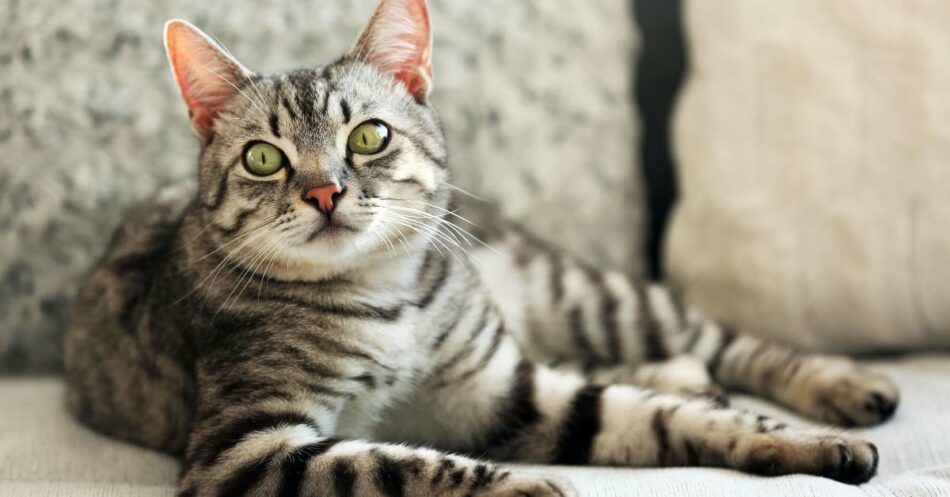
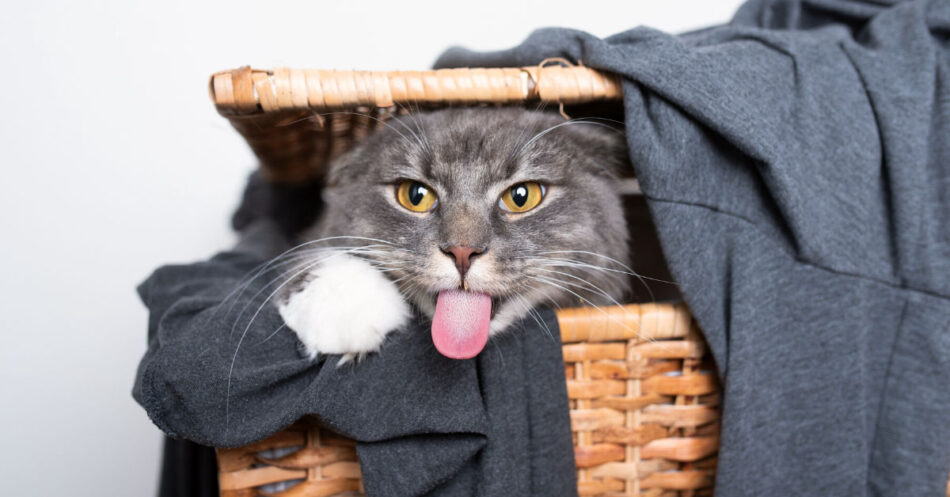
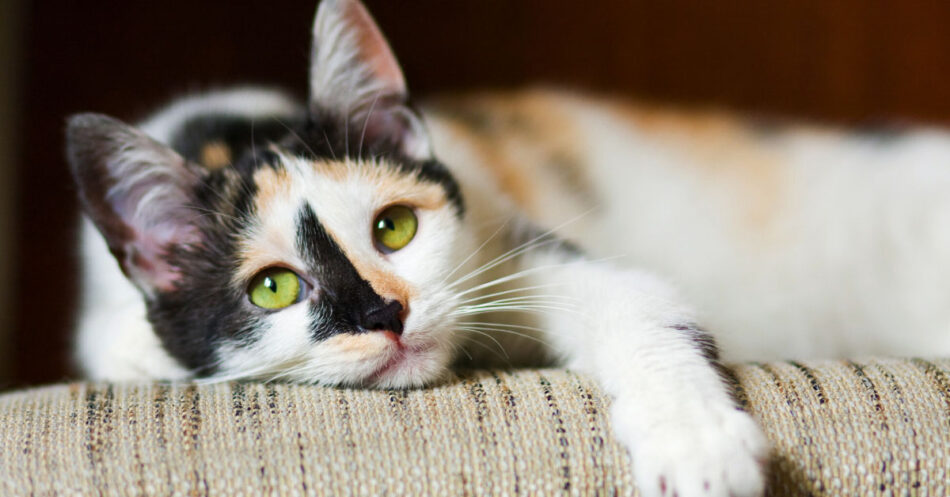
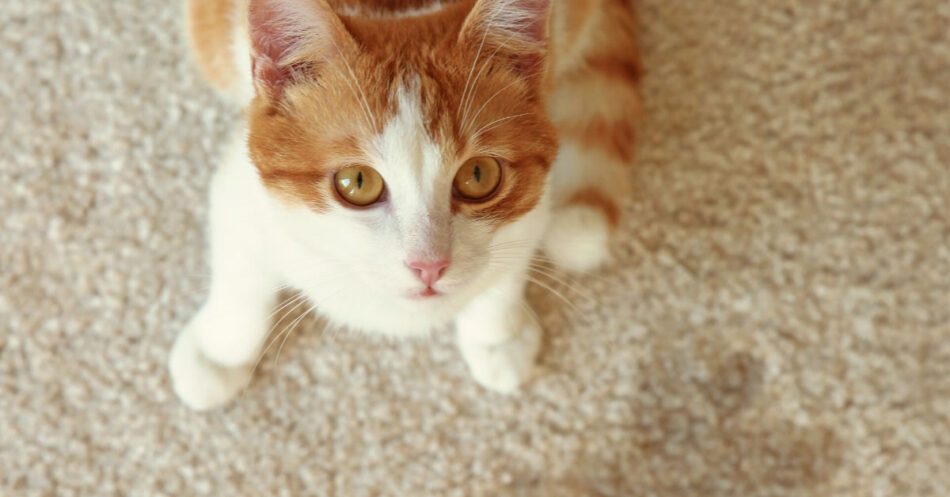
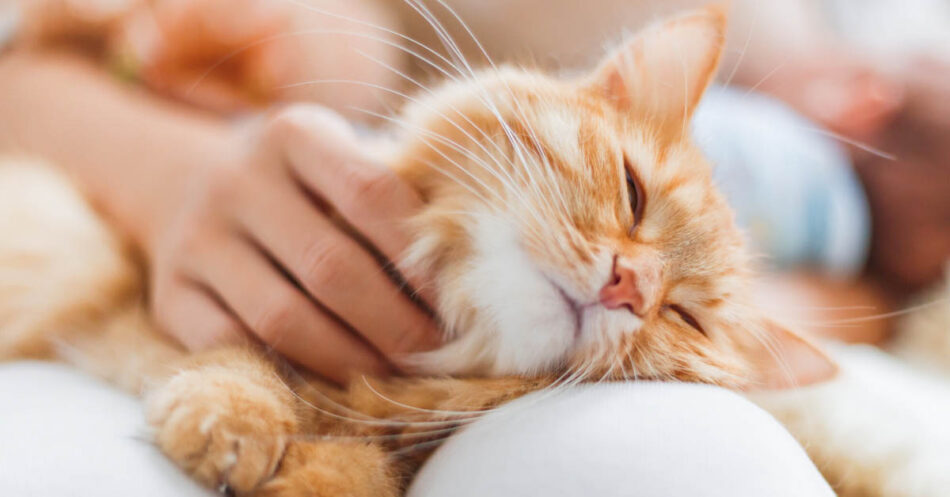
Comments (0)